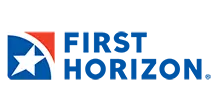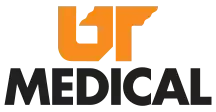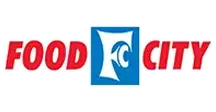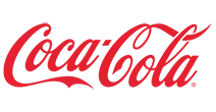University of Tennessee Athletics
Coaches & Staff
ATHLETICS ACTIVITIES
| Period | Daily Hour Limit | Weekly Hour Limit | Minimum Off Days |
| In-season | 4 | 20 | 1 / Week |
| Out-of-Season | 4 | 8* | 2 / Week |
| Vacation Period | Unlimited (In-Season Only) | 1 / Week | |
* In football: A maximum of 2 hours per week may be spent on film review and walk-throughs
* In sports other than football: A maximum of 4 hours per week may be spent on skill instruction
Policies & Procedures:
- Annual Calendar Declaration
- On an annual basis, each sport is required to submit a calendar declaration that includes in- and out-of-season segments and regular days off (e.g. 20-hour/1-day off, 8-hour/2-days off), the additional fourteen (14) additional days off, the required seven (7) discretionary period at end of championship segment and a competition schedule.
- This declaration must be reviewed and approved by each sport's SAAC representatives.
- Monthly TMP Submissions
- Sports are required to submit a Monthly Time Management Plan (TMP) calendar in Teamworks prior to the of preseason practice, or the day prior to the start of the fall term (whichever is earlier), and by the 25th day of the month prior thereafter.
- Each monthly submission must include required days off, specific practice and conditioning times/activities, including CARA and RARA.
- Upon submission, student-athletes and support staff will be notified that the monthly TMP is available to view on Teamworks.
- Changes/Notifications
- A minimum of 24-hour notice should be provided for any change. All parties should be notified via Teamworks of any changes in times or locations of required activities, changes in previously declared days off, or any additional student obligations.
- For change requests within 24 hours of the required activity or changes to required days off, sports are encouraged to contact the sport administrator and SAAC representatives to discuss proposed changes.
- Weekly CARA Logs
- Sports are required to submit Countable Athletics Related Activity (CARA) Logs seven (7) calendar days following the conclusion of the previous week.
- A notification will be sent to all student-athletes to review via Teamworks, ensure any changes/omissions are reflected and provide any additional feedback to the Compliance Office anonymously.
Additional Notes & Reminders:
- A day off is required each week during in-season vacation and preseason periods, however daily/weekly CARA hour limits do not apply
- The following activities are not permissible on a day off: compliance meetings, organized team promotional activities, recruiting activities and student host duties, media activities, fundraising events, required community service events, team-building activities, and travel days
- Travel days may not be used as off days (exception for return to campus between midnight and 5 am if no CARA occurs for a continuous 24-hour period)
- Days during an extended road trip may not be used as a required day off, even if no CARA or RARA occur on a given day
- A sport is not required to provide a day off during a week in which an SEC or NCAA Championship event takes place.
- Student-athletes must be provided an additional 14 days off per academic year in addition to the required days off outlined above.
- A competition day is considered three (3) hours of activity regardless of the actual duration of the event (this includes pre-game warm-ups, shoot-around, etc.). No countable activities may take place after a competition.
- Required Athletically Related Activities (RARA) (e.g., compliance meetings, recruiting activities, media activities, etc.) do not count toward the hour limitations displayed above, but may not be required on a student-athlete's day off.
- Voluntary Athletically Related Activities (VARA) do not count toward the limitations displayed above. However, any activity at which a coach is present must count against daily and weekly hour limits (other than meetings initiated by student-athletes during which no other countable activities occur). Academic and medical meetings do not count against daily and weekly limits.
Bylaw 17 Resources:
- NCAA Figure 17-1 (Maximum Number of Contests and Dates of Competition for Each Sport)
- NCAA Figure 17-2 (First Practice, Contest or Date of Competition, and End-of-Season Dates)
- NCAA Division I Championship Dates & Sites
For a copy of your playing season declaration or for more information on athletics activities, contact Bill Timpano at timpano@utk.edu or (865) 974-3822
AWARDS
Policies & Procedures:
- Student-athlete awards must be approved by the Compliance Office prior to issuance.
- Awards are reviewed/approved and documented via the Student-Athlete Awards Approval Form on Teamworks, which must which must be provided to the Athletics Business Office upon submission of the applicable purchase invoice.
- The Team Awards Tracking Chart on Teamworks is used to document awards throughout the year and must be submitted to the Compliance Office at the conclusion of each academic year.
Additional Notes & Reminders:
Student-athletes may receive participation, championship and special achievement awards in accordance with NCAA regulations. Some items that an enrolled student-athlete may not be awarded include:
- Cash
- Gift cards that are redeemable for cash (original amount or balance thereof)
- Cash-equivalent award (an item that is negotiable for cash or trade or other services, benefits or merchandise) for athletics participation
- Country club or sports club membership
If participating in competition outside the playing season during the summer vacation period, a student-athlete may accept prize money that does not exceed his/her actual and necessary expenses (i.e., food, travel, housing). A student-athlete will be declared ineligible if he/she accepts money that exceeds actual and necessary expenses.
NCAA Awards Charts:
- NCAA Figure 16-1 (Participation Awards)
- NCAA Figure 16-2 (Championship Awards)
- NCAA Figure 16-3 (Special Achievement Awards)
For more information, contact Tayloe Locke at tlocke@utk.edu or (865) 974-2908.
CAMPS & CLINICS
Procedures:- Submit the Institutional Camp-Clinic Pre-Approval Form to Compliance and Event Management for approval on Team
- Submit camp/clinic web page/brochure/flyer to compliance for approval
- Once all is approved, information may go live on your camp web page
- Submit all new employee paperwork to business office
- Submit Program Registration Form as part of Programs for Minors on Campus Policy
- Must be completed at least 45 days prior to camp beginning
- Verify list of working employees are on payroll
- Complete all compliance forms
Policies:
- All UT camps/clinics must be registered online with Programs for Minors a minimum of 45 Days in advance of the start of the camp/clinic).
- Camps/clinics held on-campus and staffed solely by UTAD employees must be registered with Program for Minors no later than 15 days in advance of the start of the camp/clinic.
- All camp/clinics must be advertised online and open for attendee registration at least 10 days prior to the start of the camp/clinic.
- All UT camps/clinics must be appropriately and adequately advertised and open to any and all entrants (limited only by number, age, grade level and/or gender).
- All camps/clinics must meet University policies as well as NCAA and SEC rules and regulations.
- Discount & Refund Policy must be on file prior to camp / All other camp paperwork is due at the conclusion of the camp.
- Coaches working non-institutional camps/clinics must submit the requisite paperwork through Teamworks and obtain approval prior to participation in the camp/clinic.
Forms:
For more information, contact Mallory Gardner Feigl at mgfeigl@utk.edu or (865) 974-4186
ARMS
Resource Links:
Logging in for the First Time
How to Submit Official Visits
How to Submit Unofficial Visits
How to Submit PSA Ticket Requests
How to Log Contacts & Evaluations (Web)
How to Log Contacts & Evaluations (App)
How to Submit Mass Evaluations
How to Run Contact & Evaluation Reports
NATIONAL LETTER OF INTENT (NLI)
PERSONNEL
Certification of Compliance:
The University of Tennessee (UT) is committed to the principle of institutional control and responsibility which obligates it to be in compliance with the rules and regulations of the National Collegiate Athletic Association (NCAA), the Southeastern Conference (SEC) and the institution.
Any coach, employee, student-athlete, or other individual associated with the UT athletics department or an employee of UT who has NCAA compliance responsibilities (including UT employees who work outside of the athletics department) must notify appropriate institutional officials immediately of any suspected or known violation(s) of NCAA legislation or UT or SEC policies or procedures. Notification must take place by contacting (in-person or by telephone or email) an Athletics Compliance Office staff member, the Director of Athletics or the Faculty Athletics Representative.
NCAA Bylaw 10.1 outlines various actions of unethical conduct that may jeopardize a staff member's employment status. Any individual who performs work for the institution or the athletics department, even if he or she does not receive compensation for such work, is subject to Bylaw 10.1, which includes, but is not limited to, the following:
- Refusal to furnish information relevant to an investigation of a possible violation of an NCAA regulation when requested to do so by the NCAA or the individual's institution;
- Knowing involvement in offering or providing a prospective or an enrolled student-athlete an improper inducement or extra benefit or improper financial aid;
- Knowingly furnishing or knowingly influencing others to furnish the NCAA or the individual's institution false or misleading information concerning an individual's involvement in or knowledge of matters relevant to a possible violation of an NCAA regulation;
- Receipt of benefits by an institutional staff member for facilitating or arranging a meeting between a student-athlete and an agent, financial advisor or a representative of an agent or advisor (e.g., "runner"); and
- Knowing involvement in providing a banned substance or impermissible supplement to student-athletes, or knowingly providing medications to student-athletes contrary to medical licensure, commonly accepted standards of care in sports medicine practice, or state and federal law.
Head Coach Responsibility:
Per NCAA Bylaw 11.1.1, Institutional staff members found in violation of NCAA regulations shall be subject to disciplinary or corrective action, whether such violations occurred at the certifying institution or during the individual's previous employment at another member institution. An institution's head coach is presumed to be responsible for the actions of all institutional staff members who report, directly or indirectly, to the head coach. An institution's head coach shall promote an atmosphere of compliance within his or her program and shall monitor the activities of all institutional staff members involved with the program who report, directly or indirectly, to the coach.
Individual Associated with a Prospect (IAWP):
In basketball and football, an IAWP is any person who maintains (or directs others to maintain) contact with the prospective student-athlete, the prospective student-athlete's family members, or coaches at any point during the prospective student-athlete's athletics participation, and whose contact is directly or indirectly related to either the prospective student-athlete's athletic skills and abilities or the prospective student-athlete's recruitment by or enrollment at an NCAA institution. This definition includes, but is not limited to family members, handlers, personal trainers and coaches. An individual who meets this definition retains such status during the enrollment of the prospective student-athlete at the institution.
During a two-year period before a prospective student-athlete's anticipated enrollment and a two-year period after the prospective student-athlete's actual enrollment, an institution shall not employ (either on a salaried or a volunteer basis) or enter into a contract for future employment with an individual associated with the prospective student-athlete in any athletics department noncoaching staff position or in a strength and conditioning staff position. Further, an institution or staff member shall not employ (either on a volunteer or paid basis) an individual associated with a recruited prospective student-athlete at the institution's camp or clinic, unless at least two years (24 months) have elapsed since the prospective student-athlete's initial full-time enrollment at the institution.
IAWP Affirmation Questionnaire
Sports Wagering:
NCAA Bylaw 10.3 states that staff members of an institution's athletics department and non-athletics staff members who have responsibilities within or over the athletics department shall not knowingly participate in sports wagering activities or provide information to individuals involved in or associated with any type of sports wagering activities.
This prohibition applies to any practice or competition in an NCAA-sponsored sport at the intercollegiate, amateur or professional level. Sports wagering is defined as putting something on the line (e.g., money, clothing, meal, etc.) with the opportunity to win something in return. A staff member who participates in any sports wagering activity or engages in activities designed to influence the outcome of an intercollegiate contest or in an effort to affect win-loss margin ("point-shaving") may be subject to disciplinary action, up to and including termination of employment.
In addition to NCAA regulations, Tennessee state criminal law prohibits a coach of a collegiate sports team, a member or employee of a governing body of a sports team, league, or association, and/or an individual who has the ability to directly affect the outcome of a sporting event from wagering on a sporting event in Tennessee. A first offense is a Class C misdemeanor, a second offense a Class B misdemeanor, and a third or subsequent offense a Class A misdemeanor. Further, Tennessee state criminal law also prohibits individuals from knowingly receiving, supplying, broadcasting, displaying, or otherwise transmitting material non-public information for the purpose of wagering on a sporting event or influencing another person's or entity's wager on a sporting event. A violation of this law is a Class A misdemeanor.
Sports Wagering Handout
Sports Wagering Affidavit
For more information, contact Bill Timpano at timpano@utk.edu or (865) 974-3822
RECRUITING
NCAA & SEC RESOURCES












